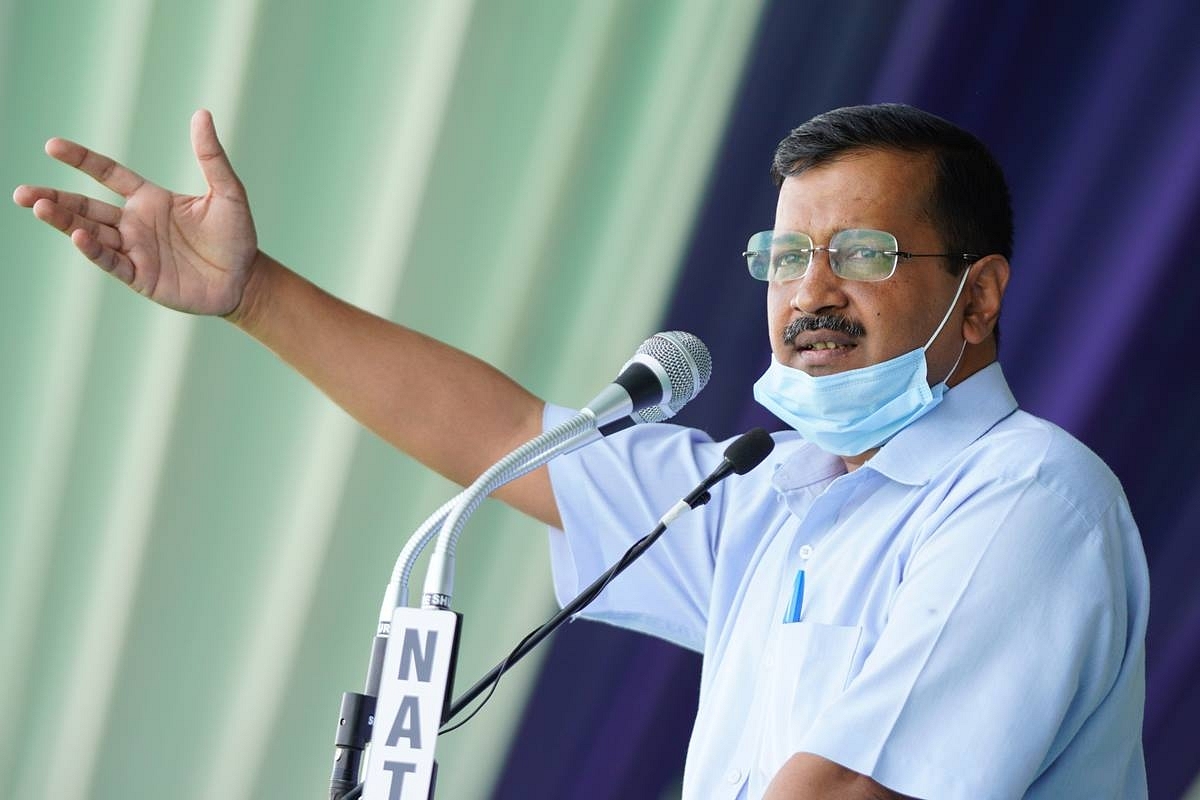News Brief
Kejriwal Moves SC After Delhi High Court Rejects His Plea Against ED Arrest In Liquor Policy Case: All About It
- Kejriwal was arrested on 21 March by the Enforcement Directorate.

Delhi Chief Minister Arvind Kejriwal.
Delhi Chief Minister Arvind Kejriwal has moved the Supreme Court against the High Court order rejecting the AAP chief's plea challenging his arrest by the Enforcement Directorate (ED) in the liquor policy case.
This comes after the Delhi High Court on Tuesday (9 April) rejected the Aam Aadmi Party (AAP) chief's plea against his arrest.
Kejriwal was arrested on 21 March by the Enforcement Directorate in relation to the excise policy case. He is presently lodged in Tihar jail.
The Delhi HC declared that Chief Minister Arvind Kejriwal's arrest by the Enforcement Directorate (ED) in the liquor policy case is valid as the agency was able to place "enough material" against him.
Kejriwal had challenged his arrest and said that it was in violation of section 19 of Prevention of Money Laundering Act (PMLA). The arguments were heard on 3 April and the verdict was reserved.
Justice Swarana Kanta Sharma pronounced the judgment on Tuesday.
The court stated that Kejriwal's arrest did not violate the law and cannot be deemed “illegal," including the remand.
The HC said that ED was in possession of enough material, which led them to arrest Kejriwal. The non-joining of the investigation by Kejriwal and, the delay caused by him were also impacting those in judicial custody.
The court acknowledged that the material collected by ED reveals that Kejriwal conspired and was involved in formulation of liquor excise policy and used proceeds of crime.
"He is also allegedly involved in personal capacity in formulation of policy and demanding kickbacks and secondly in the capacity of national convenor of Aam Aadmi Party (AAP)," the court said.
The court said that doubting grant of pardon to approvers (Magunta Reddy and Raghav Magunta) amounts to casting aspersions on judicial process as the law of approver is more than 100 years old.
"Who gives tickets for contesting election or who purchases electoral bonds is not the concern of the court," the HC said on Kejriwal's lawyer Abhishek Manu Singhvi's argument that Magunta Reddy got a Lok Sabha ticket.
The order said that the court can neither step into shoes of trial court to conduct mini trial in writ jurisdiction, nor direct the ED to conduct investigation as per Kejriwal's convenience.
On Kejriwal's allegation that his arrest just before Lok Sabha elections is politically motivated, the court said that it has to examine his arrest and remand as per law irrespective of timing of elections.
"Kejriwal's challenge to timing of arrest before General elections in absence of any mala fide on part of ED not sustainable," the Court said.
"Judges are bound by law and not by politics. Judgments are written by legal principles and not political affiliations. Political considerations can't be brought before court of law," the order said.
The court observed that the matter is not about a conflict between central government and Kejriwal, but between Kejriwal and ED and hence it is "concerned with constitutional morality and not political morality."
Support Swarajya's 50 Ground Reports Project & Sponsor A Story
Every general election Swarajya does a 50 ground reports project.
Aimed only at serious readers and those who appreciate the nuances of political undercurrents, the project provides a sense of India's electoral landscape. As you know, these reports are produced after considerable investment of travel, time and effort on the ground.
This time too we've kicked off the project in style and have covered over 30 constituencies already. If you're someone who appreciates such work and have enjoyed our coverage please consider sponsoring a ground report for just Rs 2999 to Rs 19,999 - it goes a long way in helping us produce more quality reportage.
You can also back this project by becoming a subscriber for as little as Rs 999 - so do click on this links and choose a plan that suits you and back us.
Click below to contribute.
Latest